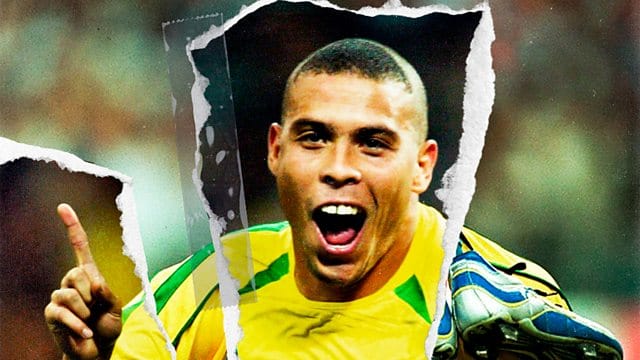The Phenomenon: How Ronaldo Taught Me What Rebuilding Means

When people hear the name “Ronaldo,” their minds jump straight to Cristiano Ronaldo — the stepovers, the goals, the famous “Siuuuu!” celebration. But before him, there was another Ronaldo. The original. Ronaldo Nazário.
They didn’t call him O Fenômeno — The Phenomenon — for nothing. He wasn’t just great. He changed football. Speed, strength, elegance, and that killer instinct in front of the goal, he was like nothing the game had seen. Before Haaland, before Mbappé, before Messi became Messi, Ronaldo was doing things that made you question reality.
But greatness doesn’t guarantee invincibility.
I recently watched a documentary on YouTube called El Fenómeno, and it hit me harder than I expected. Yeah, it’s about football, but deeper than that, it’s about what happens when life breaks you… And how you choose to rebuild.

1998. The World Cup
Ronaldo was the guy. A generational talent. Brazil’s golden hope. But just hours before the final against France, the unthinkable happened: he suffered a seizure. To this day, the full story remains foggy. But one thing was clear: Ronaldo wasn’t himself on the pitch. Brazil lost. The biggest stage. The biggest disappointment.
For most athletes, that alone would have been enough to break them. But Ronaldo’s nightmare wasn’t over.
Not long after, he suffered one of the most devastating injuries in sports: a snapped patellar tendon. Twice. The injury was so severe that doctors told him he might never walk the same way again, let alone play football.
Think about that. You’re at the top of the world. The world loves you for your brilliance, your joy, your electric smile… and in an instant, it’s gone.
He flew to the U.S. to see a specialist. The doctor didn’t sugarcoat it: "I can fix your knee… but you’ll never be the same player again."
Most people would’ve accepted that. Most people would’ve crumbled. But Ronaldo isn’t like most people.

The Long Road Back
He returned to Brazil. Eventually, he found himself in a rehab clinic in France. But it wasn’t just his knee he had to rebuild it was his identity.
Football had defined him. The fame, the goals, the glory. Now, stripped of that, he was forced to face something most of us spend our whole lives avoiding: stillness.
For the first time, Ronaldo wasn’t a superstar. He was just a man — a husband, a father, a son. He spent time with his newborn son. He reconnected with family. He sat with himself, with his doubts, with the fear.
And slowly… quietly… he started to rebuild. Not just physically. Mentally. Emotionally.
See, rebuilding isn’t just about grinding harder or pushing through pain. It’s about surrendering your ego. Asking for help. Accepting that you might never be the same, but you can still be great again, maybe even greater… just in a different way.

2002. The World Cup
The ghosts of 1998 were still haunting him. The media doubted him. Fans forgot. Even his coach at Inter Milan left him on the bench. But Ronaldo waited. And when the moment came, he was ready.
Eight goals in the tournament. Two in the final. Brazil lifted their fifth World Cup. And Ronaldo? He didn’t just return, he rewrote his story.
In the documentary, Ronaldo says something that stayed with me: "It wasn’t about proving people wrong. It was about proving to myself that I could come back… and love the game again."
That’s rebuilding. It’s not loud. It’s not pretty. It’s quiet, frustrating, and humbling. But if you stick with it step by painful step, you don’t just come back. You come back better.
O Fenômeno taught me that
Not just about football. About life.
At the very end of the documentary, His thoughts are perfectly summarized in what he said below
“But the truth is that I had already won the World Cup. My World Cup was my recovery, and going through that difficult period made me a better friend, it made me a better son, and a better dad, and a much better person.”-Ronaldo Nazario